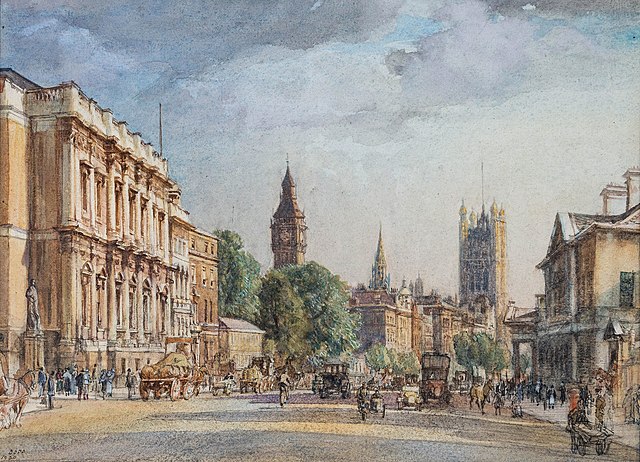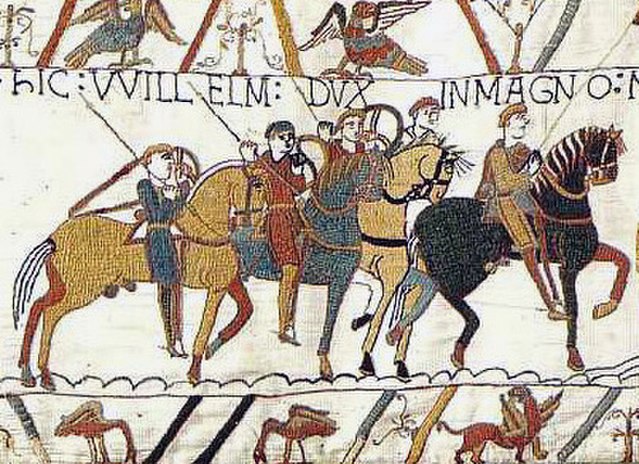The culture of England is diverse, and defined by the cultural norms of England and the English people. Owing to England's influential position within the United Kingdom it can sometimes be difficult to differentiate English culture from the culture of the United Kingdom as a whole. However, tracing its origins back to the early Anglo-Saxon era, England cultivated an increasingly distinct cultural heritage. This cultural development persisted throughout the subsequent Anglo-Norman era, and the reign of the Plantagenet Dynasty.
Whitehall by Francis Dodd (1920) displaying the Palace of Westminster
Interior of Christ Church Cathedral in Oxford
Morris dancing
Durham Cathedral, dating from 1093
The English people are an ethnic group and nation native to England, who speak the English language, a West Germanic language, and share a common ancestry, history, and culture. The English identity began with the Anglo-Saxons, when they were known as the Angelcynn, meaning race or tribe of the Angles. Their ethnonym is derived from the Angles, one of the Germanic peoples who migrated to Britain around the 5th century AD.
The Incipit to Matthew from the Book of Lindisfarne, an Insular masterpiece
A replica of the Sutton Hoo helmet
Æthelred II (c. 966 – 23 April 1016), known as 'the Unready', was King of the English from 978 to 1013 and again from 1014 until his death.
Battle of Hastings, 1066 (from the Bayeux Tapestry)








